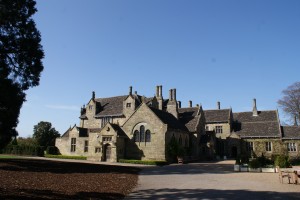
Wakehurst Place is Kew Gardens in the countryside of Sussex, glowing on a cool but very sunny April day with spring all around: cowslips, primroses (pin and thrum, some antique school botany coming back to mind), bluebells, dog’s mercury, wood anemone; and a fine chorus of birds, with chiffchaff, blackcap, song thrush, blackbird and an assortment of noisy pheasants and wood pigeons for good measure.
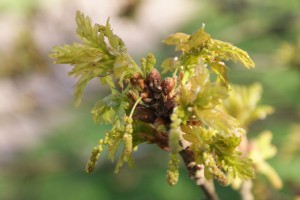
Everything was coming into new leaf or into bloom: some plants like this Oak tree were doing both at once.
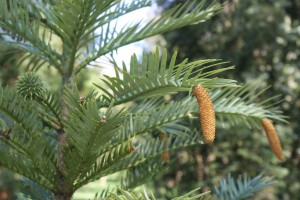
Being Kew, there are some very special plants about, not least the one-step-from-extinct Wollemi Pine from Australia, here growing happily with odd-shaped cones of both sexes in the English countryside.
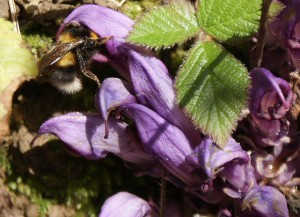
In the attached Loder Valley nature reserve, a special treat: the Purple Toothwort, a parasitic plant in the Broomrape family, scarce in Britain and a new plant for me. It wasn’t present as a lone stalk: there were good big clusters of it on a steep clayey bank. I’m not sure what it was parasitising, though at this time of year it must surely be a woody plant, and brambles were close by.
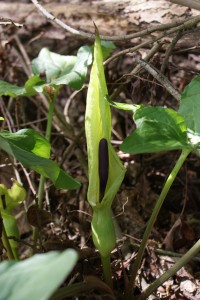
By a gatepost, a large and fresh wild arum seemed to deserve its country name Lords and Ladies, standing gracefully fresh.
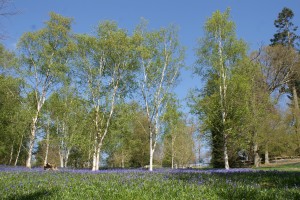
Back in the park, the silver birches perfectly set off the sea of bluebells.
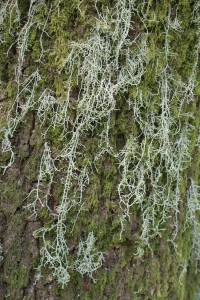
Great trailing beards of lichen draggled down an oak trunk: it’s a rare sight in Europe, and all the more surprising in Sussex, not far from the pollution of Gatwick airport. Perhaps the prevailing winds keep the air clean, but in that case why are lichens so few in Hampshire and the southeast generally?
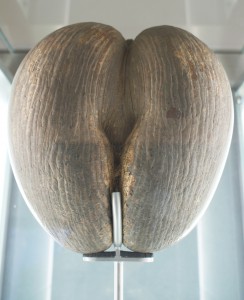
The park contains the extraordinary Millennium Seed Bank, complete with windows onto the world of toiling botanists, drying seeds and elegant specialised equipment – a gadget for pouring agar into stacks of Petri dishes, among others, and a dramatic selection of the world’s most bizarre seeds, like the very large and remarkably bottom-like Coco de Mer. It’s not one of the seeds in the seed bank just yet, as it is ‘recalcitrant’, refusing to be dried out so it can survive for centuries – it just dies instead. Love stronger than death, or something.
